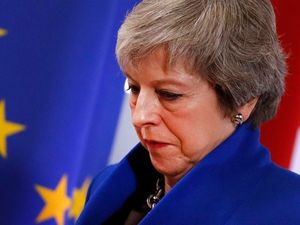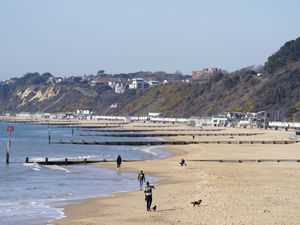Brexit: What lies ahead for the PM and her deal?
European leaders rubber-stamped the Political Declaration and Withdrawal Agreement at a historic summit on Sunday.

Theresa May faces an uphill battle to get enough MPs to back her Brexit deal, even after winning the support of every EU leader.
Here are the some of the major fights still to play out, and how she might tackle them.
‘Frantic fortnight’
The PM is due to gather her Cabinet on Monday before making a statement to the Commons. It will mark the start of what the Daily Mail dubbed a “frantic fortnight” in which Mrs May will attempt to turn the tide of opposition in Westminster to her hard-won deal.
Commons showdown
The Prime Minister confirmed on Sunday that MPs will vote on the deal – comprising the Withdrawal Agreement and the Political Declaration of future EU-UK relations – before the Christmas recess. According to reports it could take place on December 12. Mrs May said it will be one of the most significant votes that Parliament has held “for many years”. The deal must get the majority support of MPs to be written into UK law.
Eurosceptic rejection
Led by figures including Boris Johnson and Jacob Rees-Mogg, a swathe of Brexiteer Tories have rejected Mrs May’s deal and called for it to be renegotiated. This raises the prospect of some of Mrs May’s own MPs voting against the agreement when it goes before the Commons. Writing in the Daily Telegraph on Monday, Mr Johnson branded the PM’s deal a “disaster” and a “humiliation” for the UK and called for it to be voted down. In the Sunday Express, Mr Rees-Mogg, who is calling for Mrs May to be replaced, said the deal was a “failure”.
DUP dismissal
The Eurosceptics’ rejection of the plans stems in large part from the deal’s backstop provision for the border between the Republic of Ireland and Northern Ireland. Hardline Brexiteers say it risks the UK being unable to ever fully leave the EU. The DUP say the backstop would see Northern Ireland adopt a different regulatory regime to Great Britain if a wider UK/EU trade deal fails to materialise. On Sunday, DUP leader Arlene Foster said there were no circumstances under which her party would vote for the current deal.
Labour opposition
Labour repeatedly warned that they would vote against any deal that does not pass six tests. Among the requirements are that it delivers the “exact same” benefits, fair management of migration and the protection of workers’ rights and protections. Jeremy Corbyn has said the deal does not meet the tests and “is the result of a miserable failure of negotiation that leaves us with the worst of all worlds”.
People power
Facing widespread opposition in Westminster, Mrs May is appealing directly to the public to get behind the deal, in the hope that popular support will influence hostile MPs back at Parliament. She has already taken part in two radio phone-ins and on Saturday penned an open “letter to the nation” in which she said it was time to “get on with Brexit”. The next fortnight is likely to resemble a general election campaign, with the PM travelling the four nations of the United Kingdom in a last-ditch drive to drum up support. The Daily Telegraph reported on Monday that Mrs May had thrown down the gauntlet of a TV debate to Mr Corbyn. Labour said he would “relish” the opportunity.
What happens if she fails?
MPs’ rejection of Mrs May’s plan would open up several possibilities – Britain crashing out of the EU with no deal on March 29, Mrs May having to return to the EU to ask for further talks or a so-called People’s Vote that could see Brexit halted altogether. On Monday, Mrs May is expected to tell the Commons that rejecting the deal would “open the door to more division and more uncertainty, with all the risks that will entail”. On Saturday, Chancellor Philip Hammond warned that rejecting the deal would leave Britain in “uncharted territory”, while he said a no-deal Brexit would unleash “economic chaos”.
Could another deal be struck?
Commission President Jean-Claude Juncker led the warnings on Sunday that there could be no return to the negotiating table if the deal is rejected. Nevertheless, a no-deal Brexit would have damaging consequences for both the UK and EU countries. If talks were re-opened it would likely mean extending the Article 50 period well beyond March 29. According to reports, officials in Westminster and Brussels were continuing to work on plans for alternative arrangements.
Brexit: Part two
Negotiations up to this point have related to the arrangements for how Britain’s divorce from the EU will take place. If Mrs May’s divorce deal is passed by Parliament, next comes the long process of agreeing on how the UK will trade with the bloc in the future. Negotiators have until the end of the transition period, which could run until the end of 2022, to strike a deal. If they fail to do so that could mean the imposition of the backstop to ensure no disruption to the Irish border.





